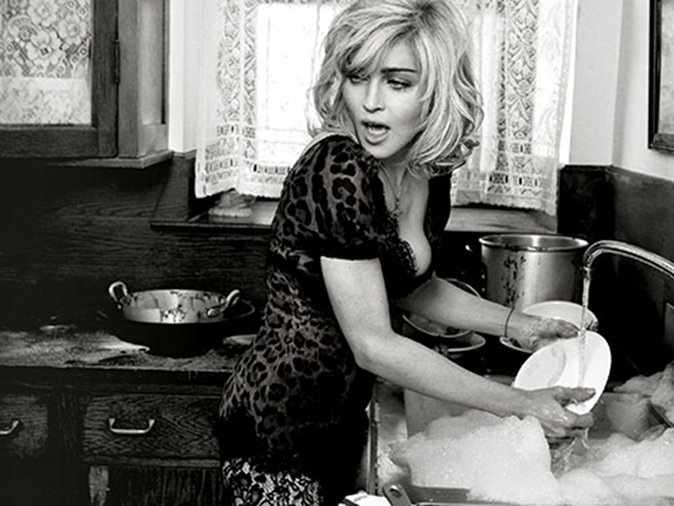
Dear Blog Readers: Several of you pointed out to me an article in the “Wall Street Journal”, “Why French Parents are Superior” and asked for my thoughts and opinions in comparison to the Italian mothering style. I decided to submit my own article to the “Wall Street Journal” on the Italian Super Mamma. After working away for several days, I sent it off yesterday only to be promptly informed that they are no longer doing “international mothering comparisons”. So I have divided my article into a 4-part series of posts for my blog. The posts do include a complilation of thoughts and notes from earlier posts so bear with me if you have already read something before. I hope you find them interesting and would be thrilled if you would feel free to comment so we can have our own debate on international mothering.
Part I – The Italian Super Mamma
Most Italian Mammas I know are remarkable people – talented, capable, creative, gracious and classy, but they are worn down by a society that does not give them any help. Today Italy has mamma ministers, mamma business leaders and mamma olympic athletes. There are plenty of Italian Mamma movers and shakers in the work force in 2012, but attitudes towards male and female roles in society seem to be stuck in the 1950s. Italian Mammas in 2012 are trying to do it all – work, handle all the childcare, be the perfect wives and mammas (measuring fevers, cooking pasta, and fretting) while their husbands do little to help, and their mothers continue to buy their socks and underwear and phone them several times a day on their cell phones to make sure they have not caught a cold.
Let’s say that old habits die hard. A blog friend of mine in Rome, Tiffany Parks, once recounted the following story.
“I once met an ancient Italian lady walking to the bus stop in Trastevere. She was lugging a heavy duffle bag, so I offered to carry it for her. In the not-so-brief walk, (I was sweating under the massive burden) she revealed to me that she lived in Naples, and that she took the train up to Rome once a month to do her son’s laundry. Yes, she was taking the massive bag of soiled laundry of her 40 year-old son down to Naples to wash and bring back up to him, neatly pressed and folded. And he didn’t even give her a ride to the train station! She had to take the bus, an 80-year-old feeble little signora! When I asked her why she did it, she beamed and said, she wanted to do it, it was an excuse to see her son more often.” – Pines of Rome Blog (Link: ThePinesofRome)
So, the Italian Mamma may be doing her son’s laundry well into his forties. On top of that she is expected to be a fabulous pasta chef, a constant worrier about her child’s health and well-being. While she is cooking and fretting, she is expected to look like Sophia Loren with big breasts, luscious legs, and perfectly coiffed hair. No bad hair days and no sweatpants at the supermarket allowed for Italian Mammas.
I know something about being a Mamma in Italy because I married an Italian in 1993, moved to Rome and have been raising my three children here. I have defined the typical Italian Mamma as Mozzarella Mammas in contrast with the Chinese Tiger Mother. Let me clarify.
Probably the most popular Italian delicacy is the mozzarella. A mamma friend once explained to me that she was worried she was raising her children to be mozzarellas. A lot of Americans think of mozzarella as that yellowish, gooey cheese on the top of a pizza. That doesn’t count. Real Italian mozzarella is a soft, white, oozy, squishy piece of fresh cheese about the size of a baseball. It is delicious. Italians love mozzarella, and often serve it with fresh basil and tomatoes.
Mozzarella-making is a time-consuming operation in which the maker has to put her hands in the milky liquid and play with the cheese as if it were bread dough, pulling, kneading, twisting and braiding until it reaches the right consistency. Then she can form it into balls, knots or braids.
If a mamma says she is worried about her child growing up to be a mozzarella, it means a soft, squishy, lazy, weak, wobbly creature. An American equivalent might be a slacker, or couch potato. I think my mamma friend might also have been drawing a comparison between the intense hands-on nature of making mozzarella –- kneading, squeezing, twisting, pulling — to the Italian mamma style of parenting — coddling, feeding, measuring fevers, hand-washing clothes and ironing shirts. Certainly, the middle-age son of the old Neapolitan lady who drags his laundry up and down the Italian peninsula is a big mozzarella.
Recent articles in the Wall Street Journal have sung the praises of the Chinese and French mothering styles, casting aspersion on the poor American Mom. There has been the great debate about Chinese Tiger Mother sparked by Amy Chua’s “Battle Hymn of the Tiger Mother,” and “Why French Parents are Superior” by Pamela Druckerman. Let me present a very different style of parenting, the Italian Mozzarella Mamma which has its pros and cons, but also helps to demonstrate that perhaps American parenting and American society is not totally off track.
According to author Amy Chua in her “Battle Hymn of the Tiger Mother” there are 7 points which distinguish a Chinese mother from a “typical Western over-scheduling soccer mom.”
I would like to contrast these 7 points with how I see the warmth, pampering and indulging done by the Italian “Mozzarella Mamma”.
Quoting Amy Chua: “the Chinese mother believes that
(1) schoolwork always comes first;”
In sharp contrast: A Mozzarella Mamma regularly goes to the school to complain to the teachers (elementary through high-school) that they are giving out too much homework to their precious mozzarellas.
Quoting Amy Chua: “the Chinese mother believes that
(2) an A-minus grade is a bad grade;”
In sharp contrast: A Mozzarella Mamma always gets a present for her child after he or she gets a “good” report card. It could be a bike in elementary school and an iPod or a cell phone in junior high and a moped in high-school. I have noticed that Mozzarella Mammas also have a rather flexible definition of “good”. My friend Adele described how her husband and mother-in-law applauded her son for a report card that had just-barely-passing grades in all subjects. I have had great difficulty explaining to my three Italian-American children that they would not be getting any report card presents because good grades are already a reward for hard work.
Quoting Amy Chua: “the Chinese mother believes that
(3) your children must be two years ahead of their classmates in math;”
In sharp contrast: I never heard of a Mozzarella Mamma pushing her child to be better than others in math. That said, I do have Mamma friends who have spent hours studying Latin and Greek to help their children through the difficult “Liceo Classico”, or have studied Dante in depth with their children. Italians begin in elementary school learning about artists like Michelangelo and Caravaggio or composers like Puccini and Vivaldi.
Italians tend to come out of highschool with a much more sophisticated understanding of history, art and music than your average American. They are decidedly more cultured.
Quoting Amy Chua: “the Chinese mother believes that
(4) you must never compliment your children in public;”
In sharp contrast: I have always been amused by the way Italians, and particularly Mammas, go max-total, all out on compliments starting with new-borns. The Italian language helps. All you have to do is add an “iss” – so if a baby is bello (beautiful), he will be constantly told by his Mamma, and plenty of others, that he is “bellissimo”, and for each little accomplishment he won’t just be bravo, he will be “bravissimo”. Giving compliments to your children in public is not a problem, you will often hear parents saying “bravissimo amore” to their little ones.
There is something to be said for the charming Italian effusiveness and tenderness with children.
Quoting Amy Chua: “the Chinese mother believes that
(5) if your child ever disagrees with a teacher or coach, you must always take the side of the teacher or coach.”
In sharp contrast: In Italy, it is just the opposite. Parents harangue teachers and coaches who they think aren’t giving their child a fair chance. I was struck by a recent newspaper article (Summer 2011) in which a couple were suing a public school for failing their six-year-old daughter, Assunta, in first grade. The teachers said that they had given several warnings to the parents, starting from the first months of the school year, but the parents did not want to hear that their bellissima, bravissima daughter might be having some difficulties at school.
Quoting Amy Chua: “the Chinese mother believes that
(6) the only activities your children should be permitted to do are those in which they can eventually win a medal”
In sharp contrast: Italians do not put a top priority on winning and medals. In all the activities my children have participated in, there have been medals for all the “bravissimi, bellissimi” participants.
Quoting Amy Chua: “the Chinese mother believes that
(7) that medal must be gold.”
In sharp contrast: A Mozzarella Mamma would be thrilled if her child got a gold medal, but for his mamma, he always deserves gold. More important than medals is that he is home in time for the pasta and doesn’t get a fever.

The folks at the WSJ also neglected to mention to you that they had already published an article about Italian moms! Albeit more tongue-in-cheek and technically Italian-American moms… http://online.wsj.com/article/SB10001424052970204883304577221130871808026.html
Just discovered your blog and love it. Looking forward to the rest of this series!
Thank you Michelle– Yes, I knew about the WSJ article on Italian-American Moms but I thought it had little to do with Italian Mammas. Oh well.
Glad you like my blog!
Looks like your kitchen:-)
Looks just like my kitchen and just like me! Yeah, right.
. . so much simpler here in Turkey – a good village lady knows her place, too – five paces directly behind her husband when not working in the fields or with the animals or making yoghurt or cheese or cleaning house or mucking out the cowshed or cooking the family meals.
Sounds just like your Mommas – apart from the immaculate make up and cleavage!
I’ve read both books you mentioned in this post, Druckerman’s and Chua’s, and I really enjoyed this comparison. can’t wait to read more!
also, i mentioned your blog in my latest post here: http://www.kateandoli.com/2012/02/ciao-bella.html
take care!
katie
kateandoli.com
Thank you Katie!! And thanks for mentioning my blog, I really appreciate it!